Does it really taste that good? Or does it just taste that good because you’re drinking it at the fishing lodge? It might be one of those impossible-to-answer questions.
My girlfriend would have everyone believe that bacon fried on a griddle outside the camper in the middle of nowhere somehow tastes better than bacon fried up at home on the stovetop. Same for hashbrowns and sausage. And anything cooked in a Dutch oven, of course.
I’ll say this, though. Everything seems to taste better when it passes your lips while in the same room as a blazing wood stove or while standing around a fire in the presence of people you enjoy.
So yes, it does taste better at the lodge, no matter what it is.
But whiskey tastes particularly good.
Minutes after landing in Santiago and clearing customs, two of us diverted our courses away from baggage claim and the slowly growing customs line to wander the aisles of the duty-free store. We were headed to Magic Waters Lodge near Coyhaique in southern Chile, and while the lodge would certainly have whiskey behind the bar, it just felt wrong to show up without a couple of bottles to share around. And our third companion had already let us know he’d picked up a bottle in Dallas, before he even left the States.
You might think we were traveling to Chile to drink whiskey. And, at least in part, you’d be right. It’s part of the grand experience, the idea of a fishing lodge isn’t complete without the reality of a bottle of brown liquor at the ready. The aromas of wood and cigar smoke perfectly mulled with the aura of a mountain evening inevitably spurs a pang for fiery spirits that warm the tongue and the soul. The same holds true for hunting camp — until they figure out how to bottle the smell of weathered canvas into some perfect elixir, whiskey will just have to do.
Sadly, our choices at the Santiago duty-free store were limited—well-known brands only, and nothing Irish. Thank the global pandemic for that, I suppose. We settled on some higher-end choices, knowing we’d look exactly like the tourists we were. Customs cleared, off we went to our hotel, where we were told to isolate until the results of our COVID-19 tests, administered minutes after landing in Chile, came back (and hopefully came back negative).
Lesser men, after watching several hours of Spanish-language TV and staring at four generic airport hotel walls, might have broken the seals on the bottles, but we refrained. Ten hours later, we all got our “negativo” results and we convened in the hotel bar, whiskey bottles safely tucked into our luggage for our trip south.
And here we are, more than a week into our two-week adventure, and after a horse-pack ride into the Chilean backcountry to fish a river most can only imagine, parts of two bottles remain.
It’s the ideal lubricant for easing away the burn of sore casting shoulders and for bringing grins to lips more used to scowling at uncooperative fish over the course of a day spent glaring through polarized lenses at the complex wood structure lining the bottom of an impossibly clear Valdivian river. It’s truth serum, too, but those are truths that never leave the heat radius of the fire or the wood stove—they die as the smoke dissipates, only to be resurrected the next time the fire starts up.
What’s more—and at the risk of sounding like something of a problem drinker—whiskey is anticipatory. When the day is done and the nose of the boat is pointed back to the lodge, it’s among the first things we think of. Ejecting wet waders takes precedence, of course. Then someplace warm. Then … whiskey. Sometimes, just a taste. Sometimes, if the day went particularly well (or particularly badly), it takes a few glasses and a couple dozen ice cubes to arrive at the perfect “place” where the mind and the soul both return to their magnetic center.
Some argue that such a feat can be accomplished without lubricating spirits, and I suppose those who have danced a little too closely to the ill effects of alcohol must find something else to achieve such balance. But a day spent fishing with friends is best finished with a toast and a sip of the elixir crafted in the heart of Kentucky, somewhere in the boreal north of Canada, the peaty regions of Scotland or the emerald mist of Ireland.
Whiskey tastes good on lots of occasions. I drink a tumbler while tying flies, and I have an occasional glass with friends who come by with a new “you have to try this!” bottle. But it never tastes quite so good as it does when there's a buddy at either shoulder after a day on the water, and the day’s stories are flowing almost as perfectly as the river outside the door.
Call it lodge whiskey. Or or camp whiskey. Call it what you like, honestly. But when the fire’s crackling or the stove is pushing heat into our cold-tired bodies and there are stories to relive, whiskey removes the unnecessary filters, unleashes the grins and the giggles and—don’t tell anybody—it makes the fishing better than it was.
That might be its greatest gift.




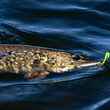
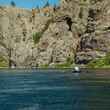
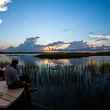
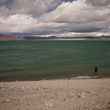
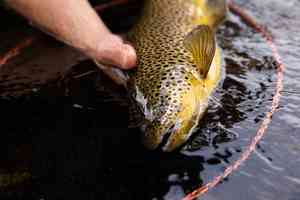



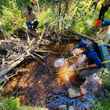
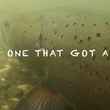

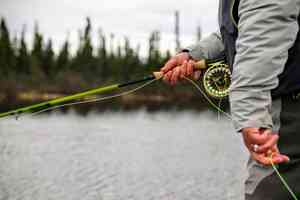


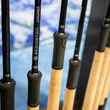




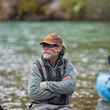
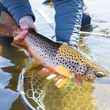
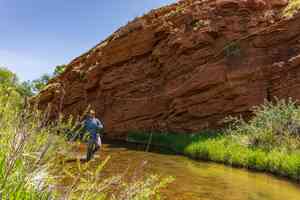
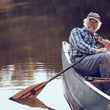
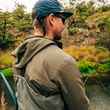
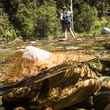

Comments
Glenn Dotter replied on Permalink
There is nothing better than a good cigar and a 18 year old glass of Macallen single malt scotch after a fine day on the water.
Doug Balfour replied on Permalink
Sorry Chris, but to paraphrase, if it's not Scotch, it's crap.
Pages